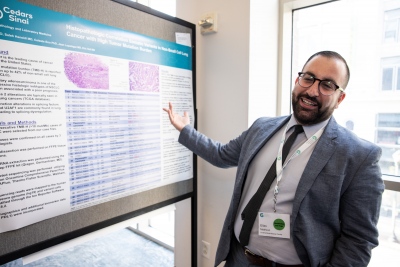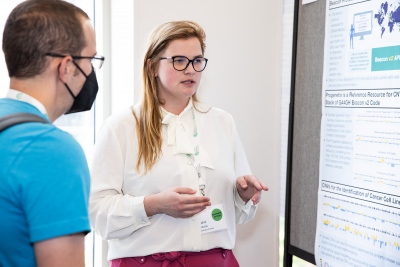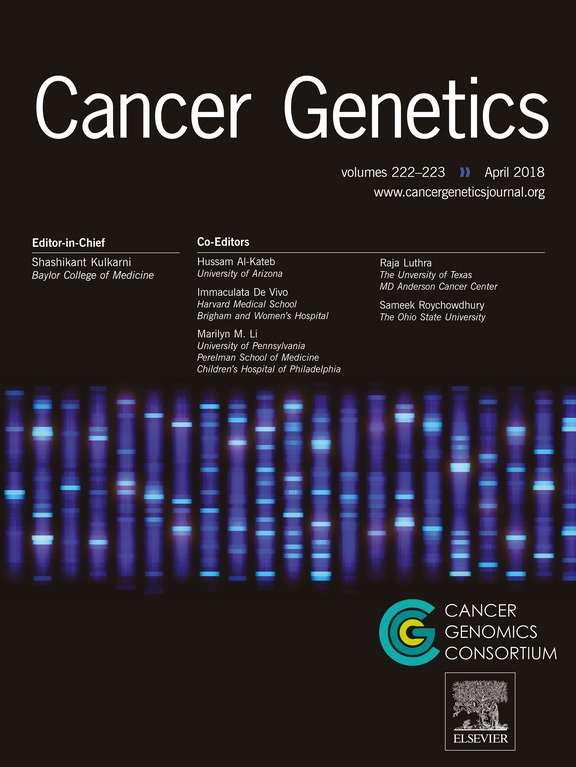2024 Abstracts
CGC 2024 Annual Meeting Abstract Submission Instructions and Topics
CGC 2024 ABSTRACT TIMELINE
Abstract submission is now closed.
| Item | Deadline |
| Abstract submission deadline | February 29, 2024 (11:59pm Pacific Time) |
| Anticipated date of acceptance notification emails | April 4, 2024 |
Deadline for presenting authors of accepted abstracts | April 17, 2024 |
Deadline for submission of slide presentations for | June 19, 2024 |
Deadline for submission of poster PDF for poster | July 9, 2024 |


- Hematologic Malignancies
- Solid Tumors
- Clinical Diagnostics in Underserved Populations
- Liquid Biopsies: Cancer Diagnosis, Prognosis, and Therapeutics
- Germline and Other Predisposing Risk-Factors for Cancer, Somatic Mosaic Disorders, and Other Constitutional Diseases
- Bioinformatics, Artificial Intelligence, and Machine-Learning
- Variant Curation and Standardization
- Emerging Technologies in Clinical Genomics: Epigenomics, transcriptomics, single-cell genomics, multi-omic integration, and more (oncology and constitutional)
- Other Advances (technical, quality improvement, or lab management)
- The abstract submission process includes an attestation that the abstract is not commercial in nature. Abstracts are expected to be fair and balanced in their presentations.
- Abstracts commercial in nature, exhibiting self-promotion, or submitted by ineligible companies will not be accepted. See new ACCME definitions and information following the "Submit Abstract" button below.
- Companies who choose to support the meeting have other opportunities to present data about specific products, including the Industry Poster Session, which is only available to those companies supporting the CGC Annual Meeting.
- CGC Membership is not required to submit an abstract. If you are not a current CGC member, simply select the option to submit "without logging in" when entering the abstract submission portal. We hope you will consider membership in the future.
- Abstracts should represent original scientific research.
- Abstract submission is for both Oncology and Constitutional topics.
- Suggested topics are found above; however, abstracts outside these topics will also be considered.
- There is a 250-word limit on the text in the body of submitted abstracts.
- While in the submission module, if you need to return to a previous page in the submission process, please use the back arrow on your browser.
- If the submitting author will not be the presenting author, please complete the question in the submission process requesting the presenting author’s full name, affiliation, email address, and phone number.
- Submitting authors and presenting authors must complete a Conflict of Financial Interest Form upon submission of each abstract.
- Abstract submissions must have an absence of self-promotion in favor of rigorous, data-driven conclusions without embellishment.
- Trainees and technologists may apply for travel grants.
- CGC membership is not required for abstract submission.
- Once an abstract is accepted, registration for the meeting will be required for participation and publication.
- If you have challenges with your submission, please email meetings@cancergenomics.org.
- Abstracts are selected based on scientific rigor.
- All accepted abstracts will be published in Cancer Genetics.
- Accepted abstracts will be designated as poster presentations, platform presentations, and/or speed talks.
- A number of abstract submissions will be selected for poster presentation. Poster size is three feet wide by four feet tall (portrait orientation).
- Platform presenters will be required to begin presentations with a slide disclosing any financial interest, of any dollar amount, and stating no conflicts if none exists.
- All presentations must be balanced, transparent, and supported by data.
Cancer Genomics Consortium Continuing Medical Education (CME) Policies and Procedures
1. CGC will follow ACCME Standards for Program Development
As a joint provider with the Mountain Area Health Education Center (MAHEC), which is accredited by the Accreditation Council for Continuing Medical Education (ACCME), the Cancer Genomics Consortium plans and produces its educational activities in accordance with the ACCME Standards for Integrity and Independence in Accredited Continuing Education to ensure balance, independence, objectivity and scientific rigor.
2. Disclosure of Financial Interest
In accordance with the ACCME Standards for Integrity and Independence, all parties (First authors of all submitted abstracts, moderators, platform presenters, program committee members, CGC board members, and CGC staff) in a position to control the content of an educational activity certified for AMA PRA Category 1 Credit™ must disclose all financial relationships with any ineligible company (see ACCME definition below), for any dollar amount, within the past 24 months that creates a real or apparent conflict of interest. Individuals who do not disclose are disqualified from participating in a CME activity.
This disclosure pertains to relationships with pharmaceutical companies, biomedical device manufacturers, or other corporations whose products or services, which are used on or directed to patients, may be related to the subject matter of the presentation topic. Any real or apparent conflicts of interest related to the content of the presentations must be resolved prior to the educational activity. Disclosure of off-label, experimental or investigational use of drugs or devices must also be made known to the audience.
3. Non-Participation in CME Activities by Ineligible Companies
In August 2023, the ACCME revised their definition of a commercial interest, and renamed them as ineligible companies. By following the ACCME guidelines, the CGC will also apply this definition:
The ACCME defines ineligible companies as "those whose primary business is producing, marketing, selling, re-selling, or distributing healthcare products used by or on patients." See ACCME's Standards for Integrity and Independence in Accredited Continuing Education for more information. The ACCME provides a set of self-assessment questions that can help an organization determine whether it falls under the definition of an ineligible company. These questions are listed below:
Structured Self-Assessment Related to ACCME's Definition of an Ineligible Company *
Does your organization, or a part of your organization, produce, market, sell, re-sell, or distribute healthcare products used by or on patients?
Does your organization advocate for, or on behalf of, an ineligible company?
Does your organization develop, or assist in the development of, non-accredited education in collaboration/partnership with ineligible companies?
Does your organization have a parent company that
produces, markets, sells, re-sells, or distributes healthcare products used by or on patients, and/or
advocates for, or on behalf of, an ineligible company?
develops, or assists in the development of, non-accredited education in collaboration/partnership with ineligible companies?
Note: A "parent company" is a separate legal entity that owns or fiscally controls an organization.
Does your organization have a sister company that
produces, markets, sells, re-sells, or distributes healthcare products used by or on patients, and/or
advocates for, or on behalf of, ineligible companies?
develops, or assists in the development of, non-accredited education in collaboration/partnership with ineligible companies?
Note: A "sister company" is a separate legal entity which is a subsidiary of the same parent company that owns or fiscally controls an organization.
5a. If Yes to 5, does your organization share management, employees, or governance structure with the sister company? (An example of a corporate structure that meets ACCME’s requirements for independence can be found here.)
5b. If Yes to 5, are any owners, employees, or agents of the sister company involved in the planning, development, or implementation of educational content?
5c. If Yes to 5, does the sister company control or influence, in whole or in part, the operations of your organization?
* If your organization answers yes to any of these questions, it would likely be defined by ACCME as an ineligible company. The CGC will follow this new ACCME regulation and cannot accept abstracts for peer review by employees of ineligible companies. Ineligible companies are encouraged to support CGC 2024 and present posters in the exhibitor poster session.
Not-for-profit or for-profit diagnostic laboratories that are not owned by device manufacturers may be considered eligible companies. Abstract submissions must have an absence of self-promotion in favor of rigorous, data-driven conclusions without embellishment. Both CGC and MAHEC will review abstracts content to ensure eligibility. All presentations must be balanced, transparent, and supported by data.

